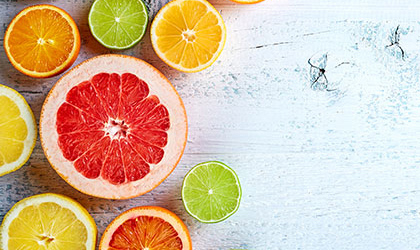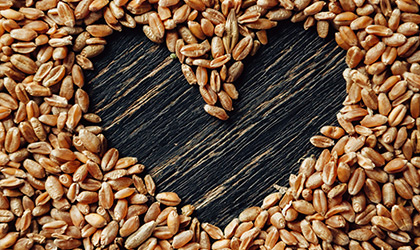
While age and genetics play a role, poor sperm count and male hormonal imbalance have also been associated with low levels of certain nutrients. So, if you’re trying to conceive, now’s the best time to implement some positive changes to your nutrition. Remember, the onus doesn’t just fall on mum-to-be; your diet should be every bit as balanced as hers. Indeed, for the miracle of new life to happen, both parties in a relationship need to up the ante. It takes two to tango, after all! Here are some fertility-boosting foods to start filling up on.
Oily fish
It’s time to make oily fish, such as herring, salmon, anchovies, and sardines, a staple of your fertility diet thanks to its potent omega-3 content. These compounds boast far-reaching benefits for your reproductive health, such as enhancing sperm count, motility and morphology i. To jumpstart those baby-growing qualities, load up on 2-3 portions of oily fish every week. A little disclaimer, though: consumption of high-mercury fish (tilefish, king mackerel, swordfish, and fresh or canned tuna) has been linked to infertility, so swap these guys for their omega-3-rich counterparts. Not a fish fan? Get your dose of essential fatty acids from nuts, seeds, avocado and lashings of extra virgin olive oil.
Oysters
These slimy suckers have a reputation for heating things up between the sheets, but that’s not the only way they can support the baby-making process. Oysters are exceptionally high in zinc, which a cornerstone of male fertility and essential for sperm production ii. To get your daily dose of 15mg, you’ll need to knock back 50g of these bivalves. If your stomach – or wallet – can’t take that much, you can get your zinc fix from munching on pumpkin seeds, turkey, mussels and lobster.
Garlic
Before garlic breath puts you off doing the deed, hear out its baby-boosting qualities. This pungent bulb is jam-packed with two magic ingredients for fertility: selenium – an antioxidant that supports sperm motility, and allicin – a compound that protects sperm from damage and improves blood flow to his sexual organs iii. The beauty of this bulb is that it’s so dang versatile. Soups, stews, curries and roasted veggies all call for a hit of this zingy spice. Aim for one to two cloves every day.
Dark chocolate
Did you know dark chocolate contains enough antioxidants to rival acai berries and pomegranate? Antioxidants are powerful weapons for baby-making by virtue of them combating free radicals – pesky molecules found in toxins and chemicals that can hamper male fertility iv. (Read more about the health benefits of antioxidants here). That’s not all – dark chocolate is also chock-full of the amino acid, L-arginine, which has been proven to support sperm production, motility and volume v. Don’t go overboard, though. Piling on the pounds won’t do your fertility any favours since it can throw your testosterone levels out of whack and lower your sperm count. Stick to two squares of quality, dark chocolate every day. Oh, and aim for 70%, too.
Spinach
If you really want a bun in the oven, start piling your plate high with this verdant veggie. Spinach is brimming in folic acid, which can help improve sperm quality and reduce semen abnormalities vi. Did you know this lean, green guy is the richest source of coQ10, too – another nourishing compound that supports sperm count in men vii. For coQ10 to work its fertility-enhancing magic, best eat spinach fresh and raw. Add a handful to salads, smoothies or sandwiches.
Walnuts
These little guys are packed with omega-3 fatty acid, boosting blood flow to the genitals and increasing sperm count. And you really don’t have an excuse not to eat more of ‘em: sprinkle on cereals, chop into salads, or simply snack straight from the pack. Aim for a handful every day. Not a fan of walnuts? Chia seeds and flaxseeds are also potent sources of omega-3 – and partner perfectly with smoothies, porridge, and cereal.
Almonds
On the subject of nuts, it’s time to get nutty about almonds, too. Almonds are full of vitamin E – an antioxidant that can improve sperm quality and protect semen from DNA damage viii. Like walnuts, almonds are super easy to cram into your diet. Make sure you stash a supply in your office drawer when the four o’clock slump strikes! Loading up on spinach, broccoli, and seeds will also help you optimise your vitamin E levels.
Asparagus
These tall, regal veggies boast impressive vitamin C credentials, making them essential for your fertility diet. Upping your intake of this powerful antioxidant will work wonders for sperm health, improving semen count, motility and morphology ix. Simply put, this antioxidant is ample fuel to rev up your swimmers! Asparagus isn’t the only vitamin C superstar; citrus fruits, sweet peppers, kiwi, strawberries, and broccoli are teeming with the stuff, too.
Ginseng
Heralded for its aphrodisiac properties, this root has long been used to improve male fertility. Not only does it increase blood flow to the genitals, but it’s also thought to boost levels of testosterone x.
Eggs
How do you like your eggs in the morning: scrambled, sunny-side up, or poached? It doesn’t matter – they’re all brilliant for your fertility. These little guys are chock-full of vitamin B-12 – a compound that’s crucially important for overall sperm health. Indeed, research suggests this nutrient wields the power to increase sperm count and reduce semen DNA damage xi. Not only that, but egg yolks are also egg-traordinarily rich in the sunshine nutrient, vitamin D, which has been associated with improved sperm motility and increased levels of testosterone xii. Alongside eating more eggs, you could up your intake of beef liver, cheese, fortified milk, and mushrooms – all of which have impressive vitamin D credentials, too.
References:
-
Safarinejad, M.R. & Safarinejad, S. (2012). The roles of omega-3 and omega-6 fatty acids in idiopathic male infertility. Asian journal of andrology, 14(4), 514-5..
-
Fallah, A., Mohammad-Hasani, A. & Colagar, A.H. (2018). Zinc is an Essential Element for Male Fertility: A Review of Zn Roles in Men's Health, Germination, Sperm Quality, and Fertilization. Journal of reproduction & infertility, 19(2), 69-81.
-
Herbmedpharmacol.com., (2018). Available online: http://www.herbmedpharmacol.com/PDF/jhp-7-306.pdf?t=636786130085486353 [Accessed 23 Nov. 2018].
-
Adewoyin, M., Ibrahim, M., Roszaman, R., Isa, M., Alewi, N., Rafa, A. & Anuar, M. (2017). Male Infertility: The Effect of Natural Antioxidants and Phytocompounds on Seminal Oxidative Stress. Diseases (Basel, Switzerland), 5(1), 9.
-
Independent.ie., Male Infertility: The Effect of Natural New Harvard study: Certain foods can boost men and women's fertility chances - Independent.ie. (2018). Available online: https://www.independent.ie/life/health-wellbeing/health-features/new-harvard-study-certain-foods-can-boost-men-and-womens-fertility-chances-36865549.html [Accessed 23 Nov. 2018].
-
Boxmeer, J., Smit, M., Utomo, E., Romijn, J., Eijkemans, M., Lindemans, J., Laven, J., Macklon, N., Steegers, E. & Steegers-Theunissen, R. (2018). Low folate in seminal plasma is associated with increased sperm DNA damage. Fertility and Sterility, 92(2), 548-556.
-
Lafuente, R., González-Comadrán, M., Solà, I., López, G., Brassesco, M., Carreras, R. & Checa, M. (2013). Diet and Lifestyle in the Prevention of Ovulatory Disorder Infertility. Obstetrics & Gynecology, 110, (5).
-
Fica, S., Albu, A., Constantin, M. & Dobri, G.A. (2013). Coenzyme Q10 and male infertility: a meta-analysis. Journal of Assisted Reproduction and Genetics, 30(9), 1147-1156.
-
Moslemi, M.K. & Tavanbakhsh, S. (2011). Selenium-vitamin E supplementation in infertile men: effects on semen parameters and pregnancy rate. International journal of general medicine, 30(9), 4, 99-104.
-
Akmal, M., Qadri, J., Al-Waili, N., Thangal, S., Haq, A. & Saloom, K. (2006). Improvement in Human Semen Quality After Oral Supplementation of Vitamin C. Journal of Medicinal Food, 9(3), 440-442.
-
Leung, K.W. & Wong, A.S. (2013). Ginseng and male reproductive function. Spermatogenesis, 3(3), e26391.
-
(2017). Vitamin B12 and Semen Quality. Biomolecules, 7(2), 42.
-
Seftel, A. (2011). Effect of Vitamin D Supplementation on Testosterone Levels in Men. The Journal of Urology, 186(1), 239-240.
You Might Also Like

Keri
Keri Filtness has worked in the Nutrition Industry for 19 years. She is regularly called upon for her professional comments on health and nutrition related news. Her opinions have been featured by BBC3, Prima, Vitality, The Mirror, Woman’s Own and Cycling Weekly, amongst others. She has also worked one to one with journalists, analysing their diets and health concerns and recommending changes and additions, where appropriate.
View More



